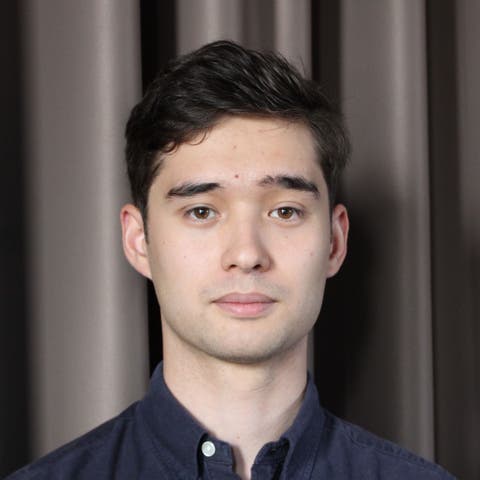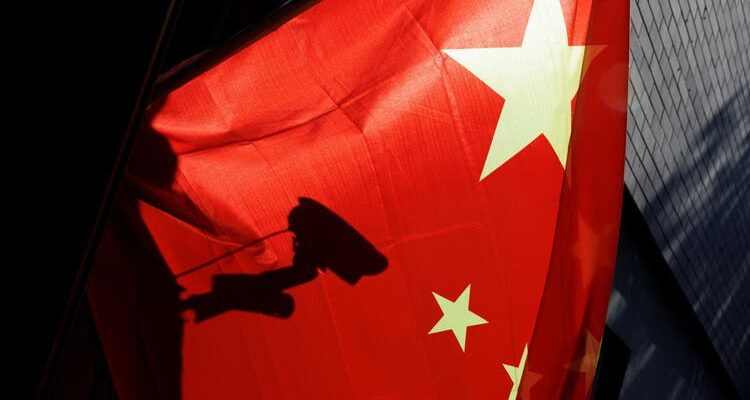For years, China’s secret service has fooled the West into believing that his country would rise peacefully, says author Alex Joske. The campaign was so successful because it exploited Western hopes.
The arm of Chinese authoritarianism reaches far. The secret services try to influence public opinion abroad.
Mr Joske, when I think of China and espionage, the first thing that comes to mind is theft of intellectual property. But in your book “Spies and Lies” you write that the most successful action by Chinese secret services was about something else. what?
An important – and arguably the most successful – part of the work of the Chinese intelligence services is aimed at manipulating opinion in other countries. These “influence operations” are intended to influence how people understand China and how political and economic decisions relating to China are made.
Can you illustrate that with an example?
Take the theory of the peaceful rise of China. So the idea that China is liberalizing and reforming and that it will peacefully fit into the existing international order. So that China will achieve superpower status without challenging the US. That history will not repeat itself: China’s rise should not lead to a war between the great powers like that of Nazi Germany or Imperial Japan. The origin and development of this theory can be traced back to the Chinese Ministry of State Security. The intention from the beginning was to distract foreigners – especially the US – from the real goals of the Chinese Communist Party.
And why was the idea accepted in the West?
There was already sympathy for this idea in the West, so it wasn’t born out of thin air. There was much optimism in the 1990s, early 2000s about the direction China was taking, mostly economically but also politically.
So China took advantage of the hope in the West. . .
Yes. China presented to the West the ideas that the West wanted to hear. The Ministry for State Security has invested heavily in spreading this idea. This is how Chinese agents managed to become sources for the American embassy in Beijing. And they then told the American diplomats that China was becoming more liberal and democratic. And the diplomats reported this back to Washington.
How did the agents manage to appear trustworthy?
The agents I focused on mostly posed as academics or civil servants. They each stated that they had excellent connections with decision-makers in the state and in the party. They pretended to have special knowledge of the direction in which China would develop.
But you can’t just pretend to be a professor. You fly up there quickly. . .
There are many international relations and diplomacy analysts in the Ministry of State Security. So you have the expertise. These now became operationally active and influenced and manipulated other people with their expertise. In addition, there were and are Chinese secret service officers who have been working abroad as “journalists” for decades. So you know how to talk about geopolitics. It is not very difficult to get involved in relevant expert discussions.
You write that these agents posed as particularly liberal-minded people. Are there people in China who are really liberal?
In the 1990s and 2000s, politics in China was much more diverse than it is today. Yes, there were real liberals and reformers – even in government. But the West underestimated the extent to which the intelligence services intervened in China’s relations with the outside world. I can show that many well-known Chinese economists, foreign policy experts and officials were connected to the branch of state security responsible for influencing public opinion.
How can this be shown? It’s all done in secret.
Of course it’s not open. The state security uses front organizations, as secret services often do. The agents use false identities when going abroad or interacting with foreigners. So it’s about recognizing patterns in these organizations and false identities and seeing who is interacting with whom. This is how you can show connections to the Ministry for State Security.
Please explain to us how this Ministry for State Security is structured.
The organization is relatively young. It was built in the 1980s on the model of the Soviet KGB. Surveillance, counterintelligence, cyber espionage, foreign espionage and influence operations come together in the Ministry for State Security. It is one of the largest secret services in the world and certainly the most active.
But doesn’t China have more than one secret service?
China’s police also spy abroad and conduct operations there to influence public opinion and politics. China’s police once had a “mole” in the CIA. In addition, the People’s Liberation Army runs several military secret services. And there are other organizations that are very foreign to us in the West, such as the United Front Work Department.
What is it?
The united front is also a concept that the CCP adopted from the Soviet Union. It’s about forging alliances with people and groups outside the party that serve the party’s goals. Who can you manipulate? Who has – if only temporarily – the same goals as the party? Who could be of service to the party? This is not intelligence work per se, but it is evident how such alliances can be useful to intelligence agencies.
Chinese communities abroad are often targeted by the united front. As a Chinese abroad, can you escape this?
Chinese communities abroad are very diverse. Many ethnic Chinese were not born in China or are multiracial like myself. Many also do not speak Mandarin, but Cantonese or Hokkien. More recently, emigrants from the People’s Republic have arrived.
Within these communities, the CCP tries to attract those with status and influence. So the united front is aimed at the elites. Here in Australia, the average Chinese-Australian has hardly ever heard of or dealt with the United Front. Many are unaware, or only recently aware, that certain representatives of their communities have ties to the CCP.
Nevertheless, Chinese communities abroad are repeatedly suspected of being in the service of the Communist Party. . .
This is an exaggeration and wrong. Most Chinese-Australians have absolutely nothing to do with it. We must focus on those individuals who really have a relationship with the CCP.
Let’s go back to the theory of China’s peaceful rise. Why was this believed in the West for so long?
The optimism about China and the economic opportunities seen there made us forget that the country was still run by the Communist Party. So at the 2008 Olympic Games they only wanted to see the positive. But the CP never intended to give up its communist ideals or power.
If the peaceful rise narrative was so successful, why isn’t China using it today?
China sees the time when it no longer has to hide its true intentions. It is becoming increasingly aggressive and hardly tries to hide its human rights violations. And it’s starting to let all the relationships it’s built play out.
Australia was one of those countries where the general public became aware of the influence of China early on. . .
For a long time, relations between China and Australia were so deep and broad that hardly anyone dared to speak openly about the danger posed by China. That changed abruptly in 2017/18 when it became known that Senator Sam Dastyari had accepted money from a Chinese billionaire. The billionaire was likely a Chinese agent. He tried to get Dastyari’s Labor Party not to oppose China’s illegal actions in the South China Sea.
As a result, Australia enacted a law against foreign influence in politics. And it banned Chinese providers like Huawei from taking part in building 5G infrastructure. China reacted with massive pressure, intimidation and threats, for example against media that had uncovered Chinese machinations. This reaction surprised the Australians. Now they are wondering what kind of partner China is and how much one should get involved with it.
To person

Alex Joske, author and analyst
Raised in Beijing, Alex Joske lives and works in Canberra. He focuses on the Chinese military and China’s overseas influence operations. His book Spies and Lies – How China’s Greatest Covert Operations Fooled the World was published by Hardie Grant Books in 2022. Today Joske works for a management consultancy.
